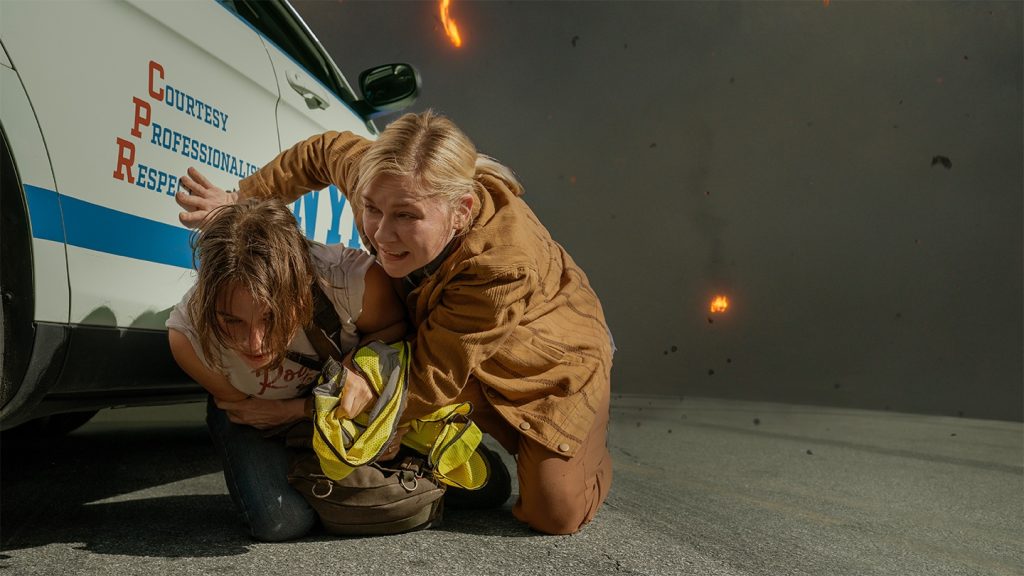Sean Durkin’s The Nest is a horror movie, but not in the way you might expect. It doesn’t contain grisly murders or masked killers; it’s not supernatural, though it does involve a giant house that is a perfect candidate for haunting. Instead, Durkin’s film is about the actual horror of the marriage at its center, between Carrie Coon’s Allison and Jude Law’s Rory, and the emotional toll Rory’s lies and class showboating take on them both, as well as their two children. Imagine if John Carpenter directed Ordinary People, and you’re not far off from the feeling of The Nest.
Durkin follows Allison, Rory, Samantha (Oona Roche) and Ben (Charlie Shotwell) as Rory instigates a major move – the family’s fourth in 10 years – from New York to London. Rory sets himself up working as a stockbroker for his former employer, and leases a massive manor house in Surrey. He buys Allison her own horse so she can start a riding school, and secures the best possible private school for Ben (Samantha, Allison’s daughter from a previous marriage, has to make do with public school).

All this magnanimity and posturing feels off to Allison, however. She’s no stranger to Rory’s financial difficulties, and his insistence on maintaining an appearance of wealth makes her increasingly uncomfortable. Rory’s constant lies and the mounting tension they create eventually reach a boiling point, forcing the whole family to a point of reckoning.
Durkin is an impressively observant filmmaker, using details throughout The Nest that speak volumes about setting, tone and character. An early scene in which Rory cheats to beat Ben in a backyard soccer game tells us everything we need to know about his values, even before his lies start to build up. The odd, Halloween-esque, distanced shots employed throughout the film give a sense of voyeurism as well as an eerie horror aesthetic, implying that something truly disruptive is about to happen to these characters. That sense is only amplified by Richard Reed Parry’s score, which somehow manages to be melancholic and tense at the same time. Even the title and credit font, with a look that brings to mind both late 80s domestic dramas and The Exorcist, establish the kind of movie we’re in for, and the period in which it’s taking place. It’s a successful balancing act of meticulous planning and effortless execution.

That same level of execution extends to the performances. Law is charming and facile as Rory, easy to see through, but so charismatic that it’s hard not to be drawn in by him. Coon gives the powerhouse performance here, however, expressing stunning range and subtlety as Allison. Her character is the focus of most of the movie’s dramatic arc, and we can see it all play out over her face as she tries to keep it together emotionally while feeling increasingly desperate, betrayed and fed up.
The Nest is a fascinating experiment in genre and tone that feels unique, though the artistic ideas powering it are so simple it seems ridiculous that it hasn’t been tried before. Durkin applies a slow-burn horror sensibility to character-driven family drama, resulting in a thoughtful expression of the film’s central theme. Living in a family this fundamentally broken feels like living in a horror movie, even if nothing violent happens. The emotional wreckage – living with hopes constantly dashed and lives frequently upended by the whims of one member – is frightening enough.
A
“The Nest” is out Friday on demand.



